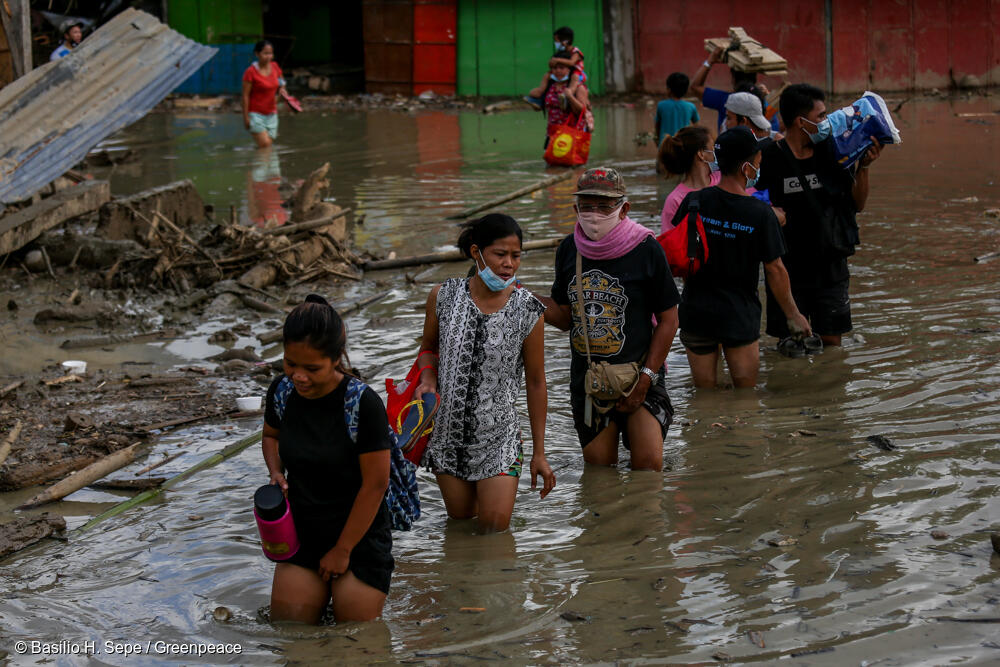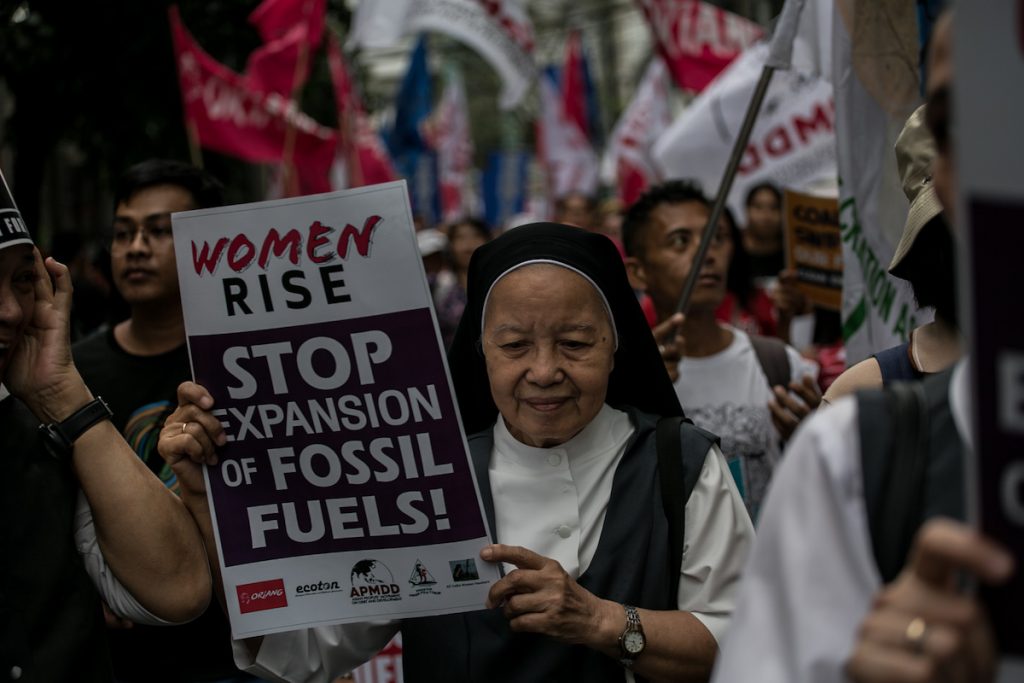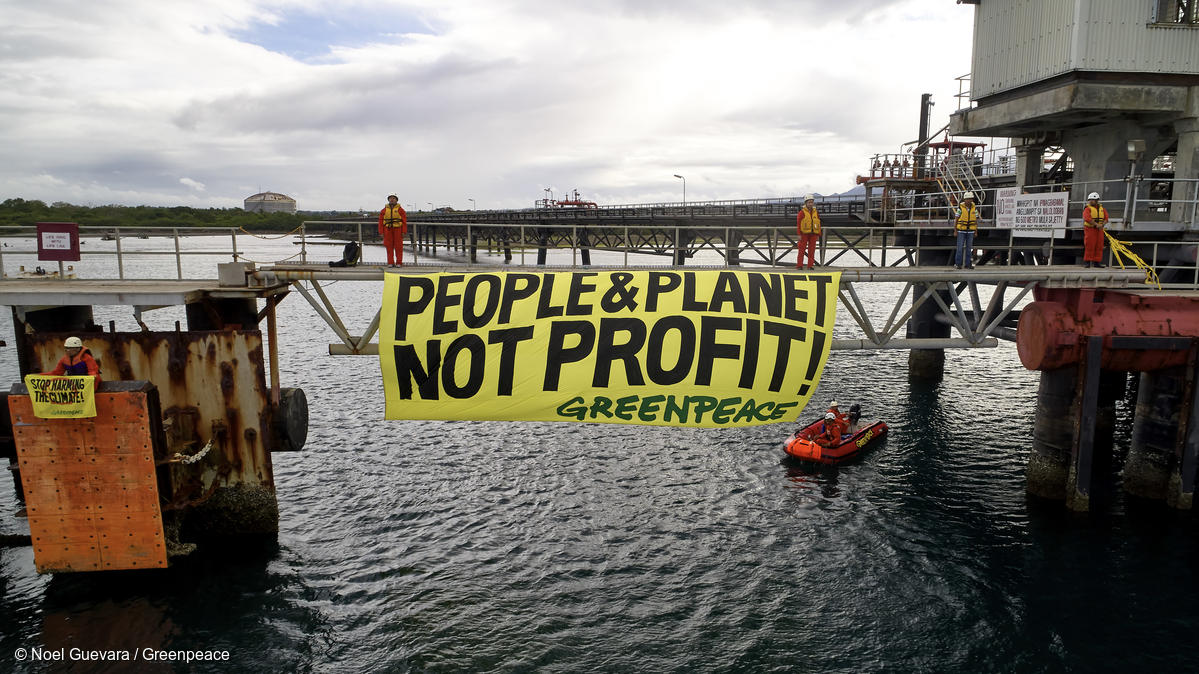A UN climate report that was released this week found that global warming is dangerously close to spiraling out of control.
“[The report] shows us that unless world leaders make their commitments as strong as the science requires, we will continue to experience increasing extreme weather events,” warned Yeb Saño, executive director of Greenpeace Southeast Asia.
He said that every year “will be record-breaking for unprecedented storms, rainfall, heatwaves, droughts, flooding and worsening conditions, such as we are experiencing now.”
The report said that even the most severe carbon emission cuts are unlikely to prevent global warming of 1.5 degrees Celsius above preindustrial temperatures by 2040.
Saño warned that frontline communities, especially in places like those in Southeast Asia, “will experience more and more climate injustice” if countries will not hold up to the Paris Agreement of limiting warming.
“The report details the science of what we already know from experience about the changing climate system and the consequent devastation,” he said.
Khevin Yu, energy transition campaigner of Greenpeace in the Philippines, said the looming impacts of the climate crisis “should compel governments to realign their climate commitments.”
He said the Philippine government “should not be content with endless negotiations.”
“Instead, the government must act with urgency to facilitate the Philippines’ just transition to a low-carbon and fossil fuel-free society,” added Yu.
The report that was released on Monday, August 9, does not address the impacts of climate change to humans, nor the ways to mitigate climate change and its impacts.
Green Thumb Coalition called on the Philippine government to “immediately cancel all dirty-energy projects particularly coal power plants and fossil gas projects.”
“We remind the government’s target to be 100% Renewable Energy-dependent by 2050 and that means measures to achieve this needs to be undertaken today and avoid detours like prioritizing gas policies and projects,” the group said.

Environment activist group Aksyon Klima Pilipinas said the findings of the report “are alarming.”
The group said the UN report “could not have come at a more opportune time, as the calls for higher ambition and climate justice continue to grow stronger globally.”
The activist group noted that current pledges of the international community would only lead to a one percent reduction in emissions, falling way short of limiting global warming to 1.5 degrees Celsius.
“The onset of the COVID-19 pandemic has provided a living preview of the scale of disruptions and losses that more extreme climate changes can inflict on countries,” said the group.
UN Secretary General Antonio Guterres, however, said in a statement following the release of the report that if nations “combine forces now, we can avert climate catastrophe.”
“There is no time for delay and no room for excuses,” he said, adding that he counts on government leaders and all stakeholders to ensure that the 26th UN Climate Change conference in November will be successful.
Green investing
Financial executives, meanwhile, said dire warnings about climate change are a call to action for investors who put their money into helping the environment.
Green investing has attracted a flood of cash and boosted companies like electric car maker Tesla Inc and clean energy company NextEra Energy that promise to help a transition away from fossil fuels.
But sustainable investment managers are confronting a two-sided challenge for ESG, or environmental, social and governance, funds.
Fund managers want to convert public enthusiasm into dollars invested while simultaneously allaying suspicions that some funds are “greenwashed” as skeptics claim.
“Not all ESG funds are created equal and investors must do their research to determine whether their investments are making a real impact or are simply feeding into an ESG-centered marketing push,” said Green Century Capital Management President Leslie Samuelrich.

New green high
Globally, sustainable funds hit a record high of US$2.24 trillion in assets in the second quarter, Morningstar data showed, up 12% from the end of March.
Many of these funds choose their investments in part on ratings of portfolio companies’ sustainability assigned by outside firms, but these grades can diverge widely.
An association of global market regulators took the first step last month towards governing the ratings. The UN report will further pressure funds to make their climate disclosures more transparent, said R. Paul Herman, chief executive of sustainable ratings agency HIP Investor.
Another challenge is finding green investment opportunities in emerging markets, which have fallen behind in curbing emissions. China, for example, said last year it would seek carbon neutrality by 2060, a decade later than other top economies.
Just 2% of the money tracked by Morningstar has gone to funds based in Asian countries other than Japan.
Randeep Somel, manager of the M&G Climate Solutions Fund in London, said more government focus on curbing emissions in those countries would inspire confidence among investors.
“Once governments start to move in emerging markets, you will see companies moving more quickly,” Somel said.

How to handle fossil fuel?
One of the biggest questions is whether to invest in fossil fuels at all. An increasing number of asset managers, such as Green Century, and pension funds, such as those of Maine and New York City, have said they won’t. Others argue it is better to work with energy companies to spur change.
“It’s easy to exclude coal companies or bad actors from your portfolio and only invest in companies that are green. The real impact comes from taking high carbon emitters and forcing them to modify their behavior,” said Michael Rosen, chief investment officer of Angeles Investment Advisors.
Angeles, which manages US$7 billion in assets, would still own an oil company if it took climate change seriously, Rosen added.
Mark Hays, director of sustainable investing for Glenmede of Philadelphia, said an earlier UN climate report in 2019 drew attention from mainstream investors. Monday’s report could spur more action, he said.
Climate change “is going to be increasingly financially material to your investment portfolio,” Hays said. – with a report from Reuters







